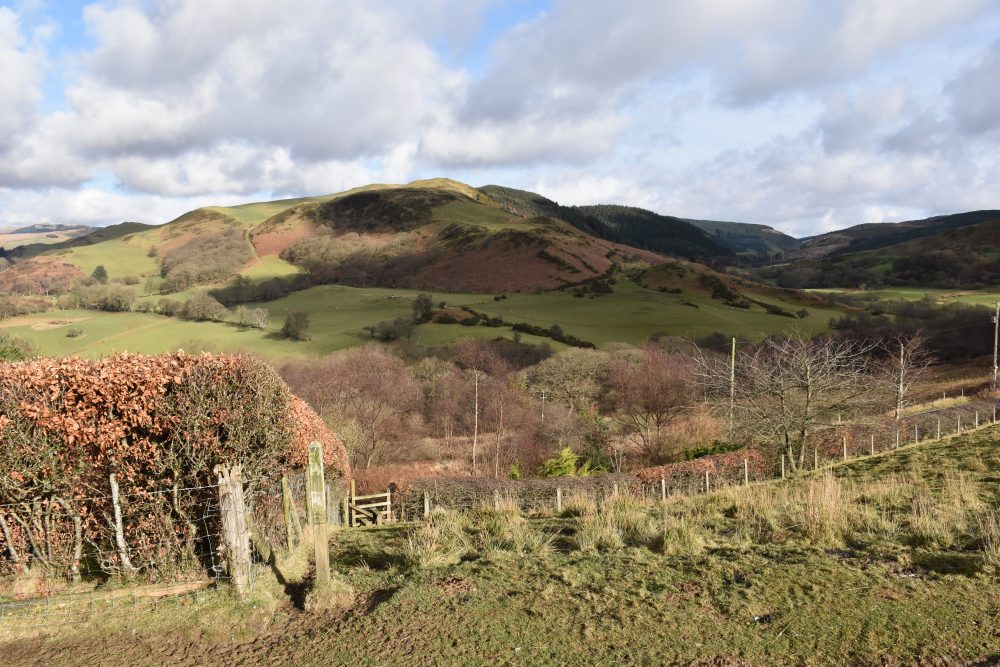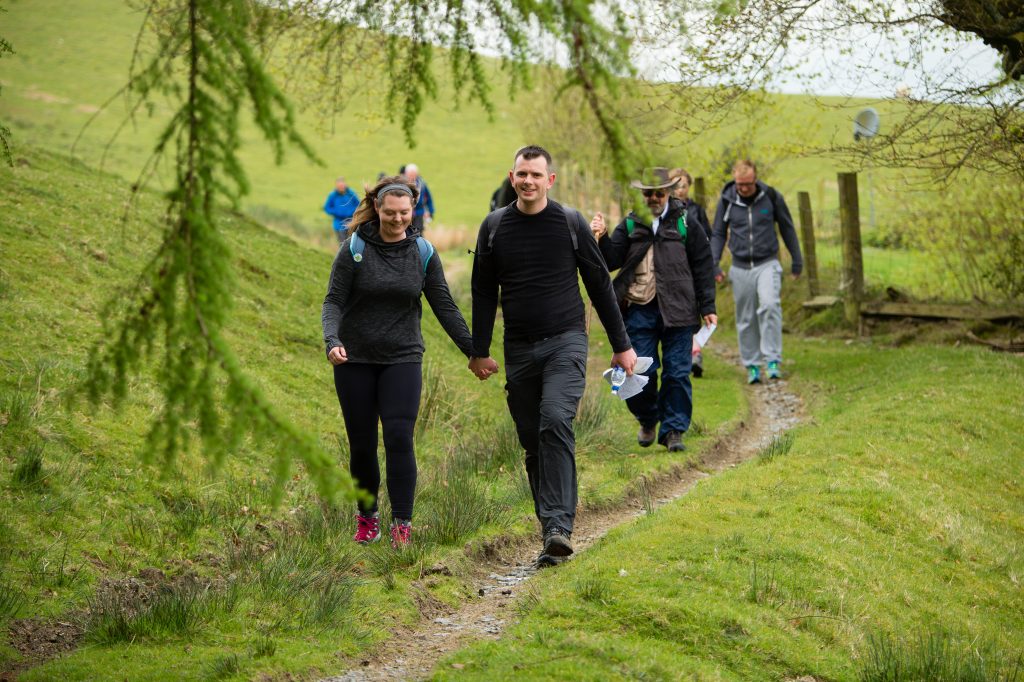Obesity and depression are just a some of the conditions that could be addressed by learning to love our outdoors, writes Rebecca Brough
“There is nothing so political as putting one foot in front of the other”.
These are Huw Irranca-Davies’ words, AM for Ogmore and vice-president of Ramblers Cymru, when addressing groups of walkers, and it always brings home just how powerful the act of walking is.
From religious pilgrimages, protest marches, “walking out” on strike, to mass trespass and fundraising challenge walks, our history is full of examples of people taking to their feet to protest, to win change, or to better themselves or the circumstances of others.
Access to the great outdoors is, and always has been, a highly political issue. Our freedoms to walk in open countryside, along green lanes, on tracks through leafy woodlands, or a coastal path across windswept cliff tops come with a rich history of rebellion, challenge and hard-fought battles.
There are more skirmishes on the horizon: battles between our increasingly sedentary lifestyles and the aspirations for a healthier Wales; between the political will to deliver improved access to the countryside and the harsh realities of funding cuts and vested interests with different visions of how land is used.
In Wales, we are facing an obesity crisis, an increasingly physically inactive population, growing mental health challenges, and we’ve declared a climate emergency. Yet we have almost 21,000 miles of paths across our country, and a third of a million hectares of land over which we can roam freely, and which offer us an emissions-free option for everyday travel and leisure.
We have a chance now to bring together thinking of how we use one of our greatest assets – our environment – to tackle some of our biggest challenges – our health and wellbeing. How can we prevent and reverse health problems and reduce our carbon emissions by utilising the fantastic paths and natural resources on offer in our communities?
The Welsh Government have just embarked on a year-long programme exploring reform of the legislation that shapes our access to the outdoors, and it’s a chance to forge that link to help people find their feet and live healthier, more active lives.
Walking works because of how accessible it is for most people at every age or level of income. The National Institute for Health and Care Excellence has identified walking as the “most likely way all adults can achieve recommended levels of physical activity”. It doesn’t have to be a daunting trek – just 30 minutes a day has been shown to reduce the risk of depression; walking for an hour a day can reduce risks of some cancers by up to 50%.
We need to get the people of Wales out walking more – regularly heading to the parks, fields, coasts and hills around them, exploring their local green spaces, and discovering the nature and history of their communities. We should reduce people’s inclinations to jump in their car to spend their leisure time further afield, instead encourage people to explore locally thereby reducing their carbon footprint.
Instilling the habit of a daily ramble would help people truly appreciate the physical and mental health benefits of walking, better connect them to nature and their local surroundings, and bring us a step closer to a healthier Wales.
So what do we need to do to win this battle?

Firstly, we need people to understand and use the environment around them, to care about their local paths and green spaces, and to put pressure on their councils, public bodies and government to invest in access. The majority of the costs of maintaining paths and green spaces falls to highway authorities – usually the Local Authority Countryside and Rights of Way team.
They have, on average, taken a 22% cut in budget for path maintenance over recent years – and some don’t have a maintenance budget at all. Average spend per person on our rights of way network is just 79p per year.
Yet, knowing the benefits walking has on health and wellbeing, is it not time we tapped into the resources of health and social care bodies and rebalanced them towards a preventative agenda?
The Welsh Government have recognised the role of rights of way and access to the outdoors in their recent Healthy Weight, Health Wales strategy, but they must now take a stronger lead on delivering change.
Wales needs a dedicated, long-term commitment of funds not only to the Local Authorities who deliver path improvements and maintenance, but a change of ethos which ensures investment starts to flow from health and care budgets into the local infrastructure and projects which get people active. This is vital to start to move us towards a healthier Wales.
Secondly, we need to make sure that the future public funding for land managers delivers better public access. The Welsh Government have recently consulted on a post-Brexit shift from basic farm payments to funding which supports public goods – paths and access being one of these.
Farmers and other land managers have a vital role in keeping our countryside open for use all to enjoy, and any new farm payments scheme in Wales must deliver paths and access which are easy to use and meet the need of communities.
Finally, the Wellbeing of Future Generations Act which is helping public bodies really embed an approach to delivery that puts wellbeing at the centre of decision making, but its not yet translating into tangible and meaningful support for our outdoor environments that will literally help us all take steps towards better health.
The rights we have to walk across our wonderful country are to be cherished and appreciated, but never taken for granted. Wales is criss-crossed by paths which were once used by miners or quarrymen, drovers and chapel-goers: these routes tell us about our past but also offer so much for our future.
It’s time for walkers everywhere to put their best foot forward and fight for our great outdoors to receive the investment and political profile it deserves. As a nation, we will be all the better for it.
All articles published on Click on Wales are subject to IWA’s disclaimer.





